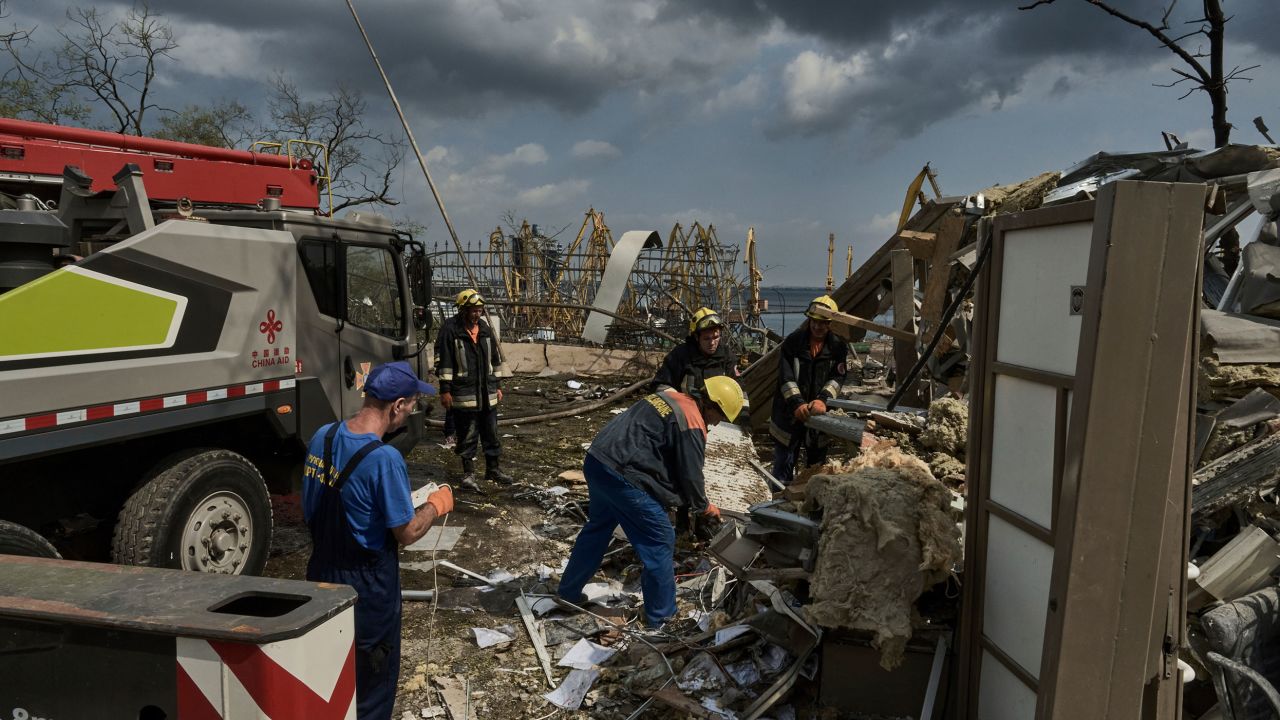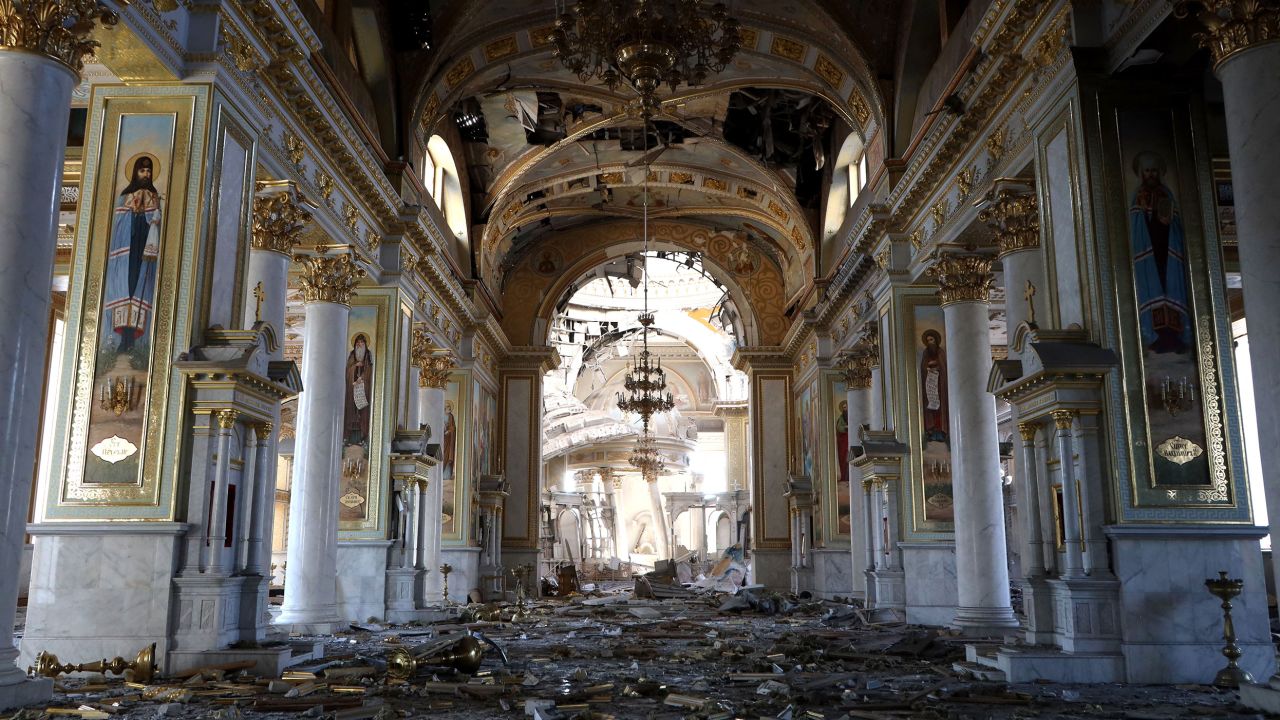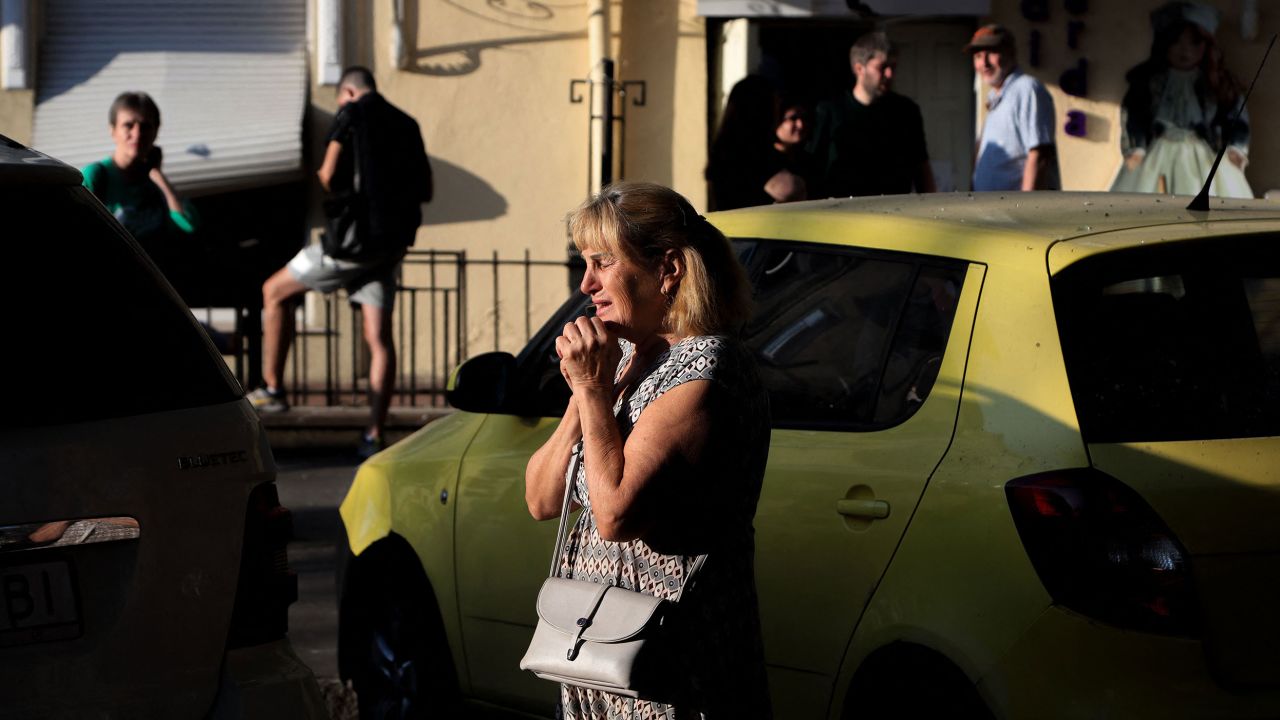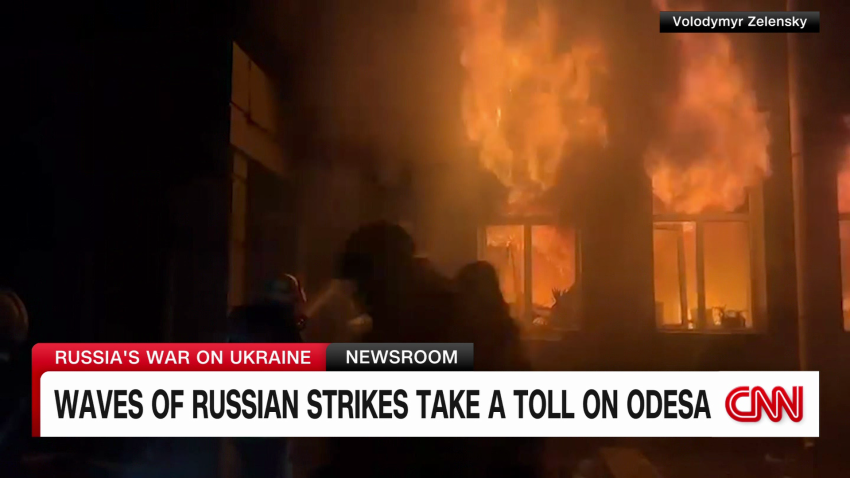Editor’s Note: Michael Bociurkiw (@WorldAffairsPro) is a global affairs analyst currently based in Odesa. He is a senior fellow at the Atlantic Council and a former spokesperson for the Organization for Security and Cooperation in Europe. He is a regular contributor to CNN Opinion. The opinions expressed in this commentary are his own. View more opinion at CNN.
It’s just past 3:00 a.m. About two hours ago, air raid sirens started to sound across the Odesa region, prompting me to leap out of bed and into my safe space — the windowless washroom in the rented flat of a 200-year-old building, which has survived all sorts of calamities over the centuries.

War forces you to seek out places that can outsmart Russian drones and missiles. My building is a low-rise, strong, obscure — it almost oozes strength and so it seems a reasonable alternative to a bomb shelter.
As an added layer of comfort, I’ve my trusty red sleeping bag from a Canadian mountaineering company. It’s accompanied me to trouble spots as diverse as the Turkish-Iraqi border, Ukraine’s Donetsk region and rural Papua New Guinea.
In my protective space at nights, I’m connected virtually with countless others on Telegram who — like me — are scrolling through Ukrainian channels. All of us trying to find out whether there will be drones or hypersonic missiles; how many, from which direction — and most importantly, where they’ve already fallen.
But as much as I keep telling myself I can weather this out — having worked and lived in many conflict zones over the years — I am beginning to recognize the gathering dark clouds that signal it’s time to leave. The daily rollercoaster of emotions, fighting back tears when describing the situation around me on live television, how even the smallest sounds seem to trigger the instinctive flight-or-fight response.
I’m not the only one. Sadly, after several nights of violent strikes, it feels as if the war is finally closing in on us in Odesa, Ukraine’s jewel on the Black Sea and my beloved temporary home over the past year. (I previously wrote here about ditching my comfy Canadian lifestyle for Ukraine.)
With its seemingly endless seaside promenade, joyful outdoor gyms, Miami-like flair and New York chutzpah, Odesa has made me its number one fan.

I doubt Russian forces intend to lay waste to Odesa the way they did to the Ukrainian city of Mariupol early on in the war. But then again, we seem to have reached a tipping point in human cruelty in this war.
Late last week, Russian cruise missiles blasted the port and an overlooking bluff where the imposing Chinese consulate is located. That’s a 10-minute walk from my flat and an area which I’d previously considered off limits to Russian aggression (isn’t Beijing one of the few buddies Moscow has left?).
And early Sunday, another strike ripped into Odesa’s historic district, with its architectural gems, museums, restaurants and famed music school. The impact sent shards of glass tumbling onto the sidewalk of my favorite hangout, Dizyngoff Restaurant, and onto the square where the statue of Odesa’s founder, Russian Empress Catherine II, once stood.
‘We are losing hope’
Lika Bezchastnova, a dear friend and owner of Dizyngoff, told me after the strike: “I’ve never felt this way before but we are losing hope in the war ending in our favor. We are feeling helpless. It’s come to the point where we feel neither protected nor supported by the West. And I don’t want to feel that way.”
Oleksandra Kovalchuk, Deputy Director of the Odesa National Fine Arts Museum (so far spared by the Russian missiles) told me: “Even though we’ve seen how dangerous it became in other parts of Ukraine in the past year and a half, including targeted hits on cultural heritage, we were totally unprepared for something of this scale in Odesa — five cultural institutions impacted by blast waves.”
“It’s intense, heartbreaking and very painful for everyone,” she added. “These institutions are very core to us: we’ve been visiting them since we’ve been little children. Seeing them hit was a very, very painful thing. It was hard to imagine that the Russians are that barbarian to target central Odesa. But they are.”

To put things into perspective, the US-based geopolitical commentator with a unique expertise in cultural property during times of war, Laura Ballman, said such assaults on priceless cultural heritage should be seen in a similar prism as the destruction of the Statue of Liberty in New York City or the Eiffel Tower in Paris. “It constitutes cultural genocide,” she recently told our “Global Impact” podcast.
Odesa’s art museum sits near grain storage areas of the main port, so it is especially vulnerable. Kovalchuk tells me her team is rushing to protect the art works.
Zombie state
In the past, friends in Kyiv often talked of the zombie state they’d experience after relentless nightly waves of Russian bombings. That’s now commonplace in Odesa: You can see it on the worn faces of residents taking their pet dogs out on their morning constitutional.
As daylight broke on Sunday, after the double strike on the Transfiguration Cathedral and the historic district, it seemed that moms were hugging their kids tighter, that faces became more stern.
Handshakes seemed more firm, as if they could be the last for a while.
When I asked one taxi driver whether the nightly violence would prompt folks who returned from overseas to flee again, he replied: “There’s nowhere for us to go anymore. This is home.” Another told me he evacuated his wife and kids to the countryside after the anxiety from the sirens and explosions became too much.

One of my longtime friends — a local business owner who I’d considered a pillar of strength — fled Odesa for Western Europe last week just for some peace and quiet.
Our wartime humor may not be understood by everyone but, trust me, it helps us cope. My friends and I debate whether, during these times, wine consumption should be increased to numb the senses — or be reduced to keep alert in case there’s a need to flee (I’ve staked ground somewhere in between the two approaches).
Especially at night, a home-cooked meal feels extra special knowing it could be my last for a while. I’ve made it a habit to bid sleep-deprived shop clerks a quiet night. The other night in a vacated flat next to the Opera House, one of Odesa’s famed pianists, Andrii Pokaz, gracefully fulfilled requests from us on a grand piano as air raid sirens blared. In my head I labelled the impromptu concert: “Waiting for the Rockets to Come.”
Yet another red line?
Russia has crossed so many red lines since the start of its full scale invasion in February 2022 that it feels almost meaningless to re-attach that label to the recent attacks on Odesa.
Even the most skeptical of us never expected Russia to strike the main port — a crucial cog in the global food supply chain. In a further escalatory step overnight on Monday, Russia bombed Ukrainian ports on the Danube River, within view of NATO member Romania, and on an alternative waterway to the Black Sea where it was thought grain exports would be safe.
Odesa has borne the brunt of Russia’s fury over the Crimean bridge attack this month. The attacks also coincide with Russia pulling out of the Black Sea grain deal that was keeping Ukrainian grain flowing to the world.
It’s becoming clearer that part of the Kremlin’s military strategy to defeat Ukraine has expanded to the Black Sea, from where the deadly Kh-23 and Oniks anti-ship cruise missiles are launched.
They fly unbelievably fast, are capable of traveling extremely high and low altitudes and are pretty much immune to interception by conventional means (which is why the leadership here in Ukraine is calling for Patriot missile defense systems).
Get Our Free Weekly Newsletter
- Sign up for CNN Opinion’s newsletter.
- Join us on Twitter and Facebook
The twisted Kremlin’s end game this time, it seems to me, is to rip apart Ukrainian agricultural export infrastructure to the point that desperate markets have no choice but to source from Russia. Consider that East Africa, where the World Food Program says millions of people are experiencing unprecedented levels of food insecurity, is hugely dependent on Ukrainian grain.
As much as words of condemnation from austere bodies such as UNESCO have become a customary response to Russian aggression, words don’t repel missiles the way the Patriots do.
So will I stay in Odesa or will I go? There’s no easy answer. The world needs trusted eyes and ears on the ground to report what is happening, to give context to the Russian aggression. My inner Ukrainian self, as unconventional as it sounds, tells me not to run from the burning house. But my journalistic sense tells me that I am of no use to anyone if I am silenced.
All I know is, I want to be in the fan zone when Ukraine declares victory over Russia.
